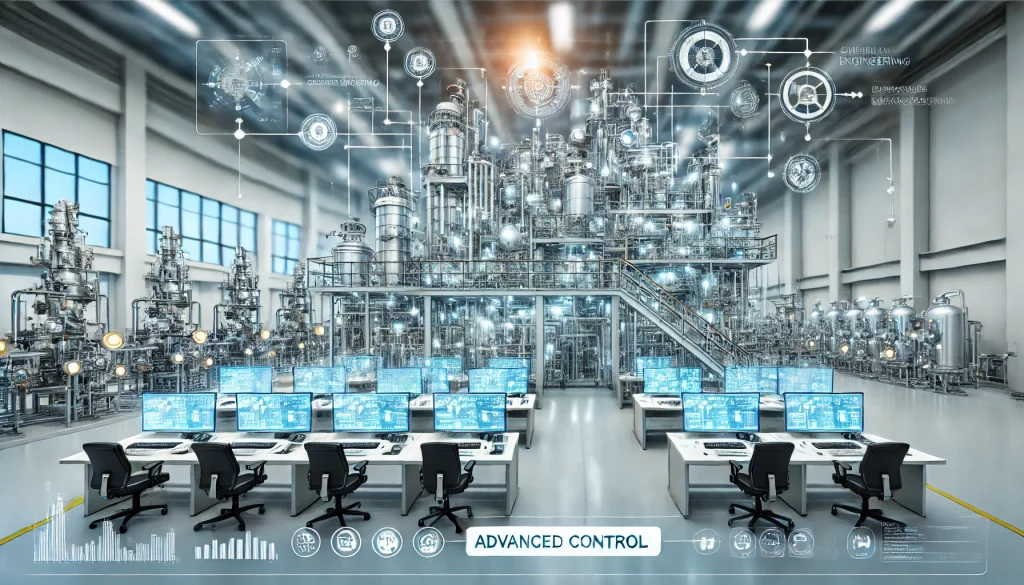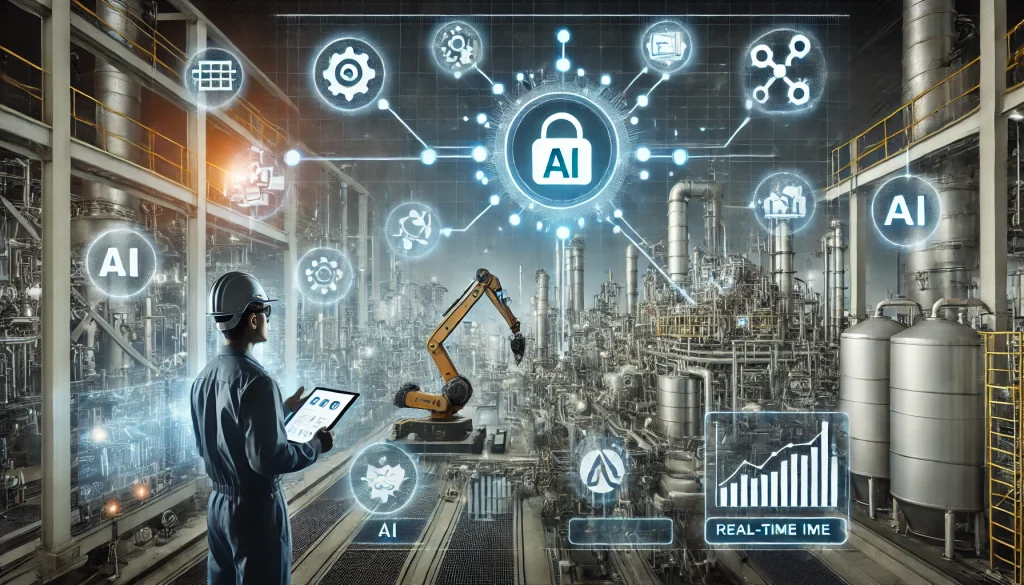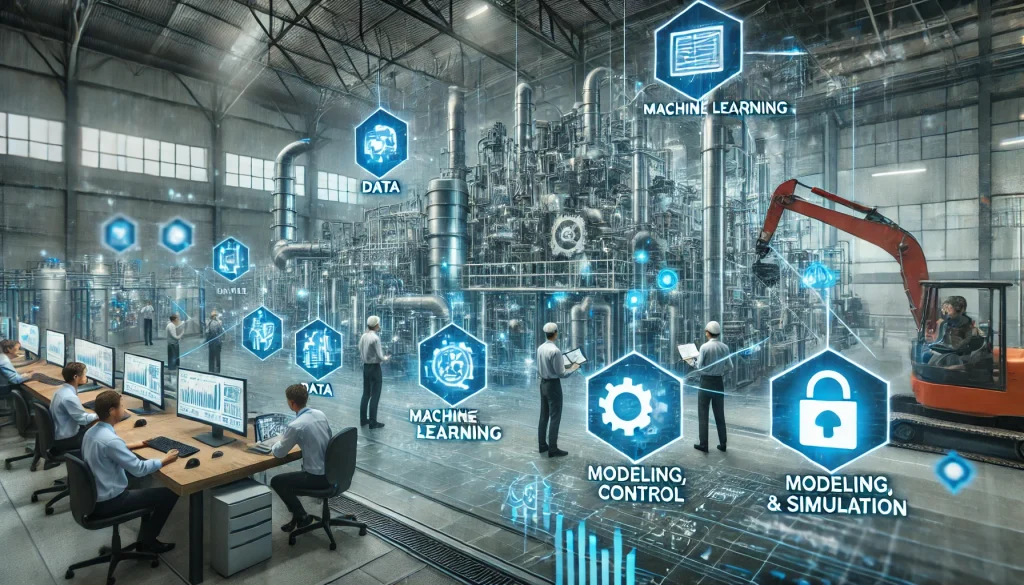Advanced Process Control (APC) refers to a collection of techniques and technologies used to optimize the control and performance of complex industrial processes. Unlike traditional single-variable controllers, APC systems are designed to handle multivariable, nonlinear, and dynamic processes by using advanced algorithms to continuously adjust setpoints and control actions in real time.
Industries such as petrochemicals, energy, and manufacturing have increasingly adopted APC to improve process efficiency, product quality, and energy utilization. At the heart of APC systems are sophisticated control strategies, including adaptive, robust, model predictive, and more recently, machine learning-based control systems. These allow processes to react swiftly to disturbances, uncertainties, and changing operational conditions, leading to improved profitability and sustainability.
Key Components of Multivariable and Nonlinear Control Systems
In many industrial processes, the interaction between multiple variables (e.g., temperature, pressure, and flow) necessitates the use of multivariable control systems. These systems account for the interactions between different control loops, optimizing overall performance rather than individual components.
In multivariable control, systems such as Model Predictive Control (MPC) are commonly used to predict future process behavior and optimize control actions accordingly. These controllers can manage processes with strong coupling between variables, ensuring that changes in one variable do not adversely affect others.
Nonlinear control, on the other hand, is essential for processes that exhibit highly nonlinear behaviors—common in reactors and chemical plants. Traditional linear control models are often insufficient in these cases. By implementing nonlinear control strategies, processes can be controlled more accurately, even under variable and extreme conditions. Feedback linearization and sliding mode control are examples of nonlinear control methods that have been successfully applied in industry to enhance performance under such conditions.
Adaptive and Robust Control Techniques for Process Stability
Adaptive control refers to control systems that adjust their behavior in response to changes in process dynamics. These controllers are designed to cope with model uncertainties or changing system parameters, automatically tuning themselves to maintain optimal performance. Adaptive control systems are especially useful in industries with variable feedstocks or operating conditions, such as petrochemical refining or energy generation.
Robust control is another key technique in APC, focused on ensuring system stability and performance even in the face of disturbances and model inaccuracies. Robust control strategies are designed to handle the inherent uncertainty in process models, providing reliable performance under a wide range of operating conditions. H-infinity control and robust model predictive control are widely used in industries to maintain process stability and performance in highly uncertain environments.
Model Predictive Control (MPC): A Cornerstone of APC
Model Predictive Control (MPC) is perhaps the most widely used advanced control technique in APC systems. MPC uses a mathematical model of the process to predict future system behavior and solve an optimization problem in real time. Based on these predictions, the controller adjusts the system inputs to achieve desired performance over a defined horizon, typically subject to constraints on process variables.
MPC’s ability to handle multivariable systems, constraints, and time delays makes it a powerful tool for optimizing complex industrial processes. Its flexibility allows MPC to be applied in various industries, from chemical plants to power systems. In my experience, MPC has been particularly effective in managing energy consumption and optimizing reactor conditions, where tight control of multiple variables is critical.
Reconfigurable Control Systems for Flexible Operations
In industries where operating conditions can change frequently, reconfigurable control systems provide the flexibility needed to adapt to different modes of operation. These systems can switch control strategies or reconfigure the control structure as the process shifts from one operational regime to another.
For instance, in batch processes or plants that produce different products with the same equipment, reconfigurable control enables a seamless transition between different control configurations without manual intervention. The integration of real-time data allows reconfigurable systems to react quickly to changes, ensuring consistent performance across different operating conditions.
Health-Aware Control for Process Safety and Reliability
Health-aware control systems integrate condition monitoring and fault detection into the control strategy, allowing processes to operate efficiently while also monitoring the health of equipment and systems. These controllers continuously assess the condition of key components, such as pumps, valves, and sensors, and adjust control actions to prevent failures or malfunctions.
Health-aware control is particularly valuable in industries where unplanned downtime is costly, such as oil refineries or large-scale manufacturing facilities. By incorporating predictive maintenance and real-time diagnostics, health-aware control systems can significantly enhance process reliability and safety.
Reinforcement Learning (RL) and Machine Learning (ML) in Process Control
In recent years, Reinforcement Learning (RL) and Machine Learning (ML) have emerged as powerful tools for developing more intelligent and adaptive control systems. RL is particularly well-suited for dynamic environments where processes evolve over time. In RL, an agent learns to make control decisions by interacting with the environment and receiving feedback (rewards or penalties) based on the actions it takes. This trial-and-error approach allows the controller to optimize performance based on real-time feedback.
In process control, RL-based systems can adapt to changing conditions in ways that traditional controllers cannot. They are particularly useful in nonlinear, multivariable processes where disturbances are frequent and difficult to predict. For example, RL can be used to optimize chemical reactors or distillation columns by continuously learning and adjusting control strategies in real time.
Machine Learning (ML), on the other hand, allows for the development of predictive models that can improve process control by analyzing large datasets collected from sensors and process instrumentation. ML techniques such as supervised learning and unsupervised learning are used to identify patterns in process behavior, predict future states, and optimize control actions. In my experience, ML-based predictive control has been extremely effective in applications like fault detection and energy optimization, where it can uncover hidden patterns that traditional models might miss.
The integration of RL and ML with traditional APC systems provides a new dimension of intelligence and adaptability, making processes more responsive to variability and improving overall performance.
Applications of APC in Process Optimization and Energy Efficiency
APC systems have been widely adopted across industries to optimize process performance and improve energy efficiency. For instance, in chemical manufacturing, APC is used to tightly control reactor conditions, ensuring that reactions occur at optimal temperatures and pressures, leading to higher yields and reduced energy consumption.
In refining and petrochemical industries, APC plays a crucial role in controlling distillation columns, heat exchangers, and other energy-intensive units. By maintaining optimal operating conditions, APC systems minimize energy usage while maximizing throughput and product quality. Model-based predictive control systems can adjust process setpoints in real time, accounting for fluctuating market demands or raw material variability, further enhancing energy efficiency.
Challenges and Future Directions in Advanced Process Control
Despite the significant advancements in Advanced Process Control, challenges remain in its implementation and widespread adoption. One of the primary challenges is the integration of APC systems with existing legacy control systems. Many industrial processes still rely on traditional PID controllers, which can be difficult to integrate with newer, more complex APC systems.
Another challenge is the computational complexity of APC algorithms, particularly those involving nonlinear models or real-time optimization. As processes become more sophisticated, the demand for more powerful computational resources increases, posing a challenge for real-time applications in large-scale industrial environments.
Looking ahead, the future of APC lies in the continued integration of machine learning and artificial intelligence techniques, as well as the development of more autonomous control systems capable of handling highly complex and dynamic environments with minimal human intervention. AI-enhanced APC systems, driven by real-time data and advanced algorithms, will play a key role in the next generation of industrial control systems, enabling more efficient, adaptive, and resilient operations.
Advanced Process Control (APC)
Advanced Process Control (APC) refers to a collection of techniques and technologies used to optimize…
Numerical and Computational Methods
Numerical and computational methods are essential tools in Process Systems Engineering (PSE), enabling engineers to…
Artificial Intelligence in Process Systems Engineering (PSE)
Artificial Intelligence (AI) has emerged as a transformative force in Process Systems Engineering (PSE), enabling…
Real-Time Applications and Digital Twins
Real-time applications (RTAs) are systems that process data instantaneously, delivering results or actions within predefined…
Process Systems Engineering (PSE)
Process Systems Engineering (PSE) is a multidisciplinary field that focuses on the design, modeling, analysis,…





